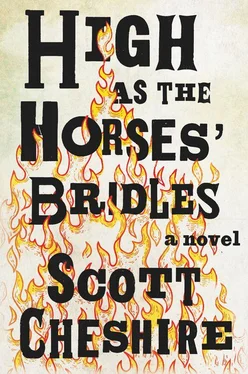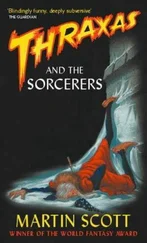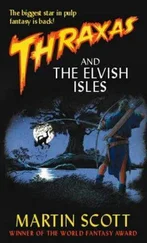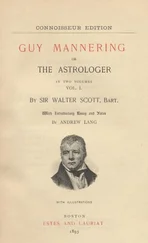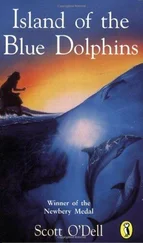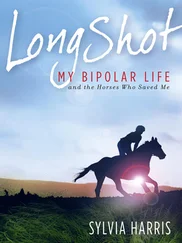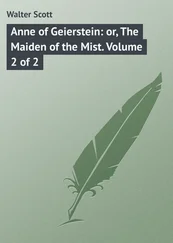Bart looked at his watch. He said, “Well, we’ll leave you to your wife. I hope she feels better. Maybe we’ll stop by again sometime. And just talk. I might even use my Bible!” He laughed, putting his bag back on his shoulder. He patted Gerard’s arm.
He said, “Josie, right? You know, the scriptures do make a promise. This life is not all there is. And I promised you a scripture.” Then he recited: “And he will wipe out every tear from their eyes, and death will be no more. There be no more sorrow, and no crying, pain will be no more. The former things have passed away.”
Memory washed over me like a slow wave. “Revelation,” I said. “Chapter twenty-one.”
Bart made a face — he was impressed.
“Your wife,” he said. “I hope she feels better soon. And remember, one day, you won’t have to worry about that anymore. That’s what He says, anyway.” His eyes looked skyward, and he put out his hand again.
I took it.
“You’re not afraid of anything, are you?” I said. “Not even death.”
We were still holding hands.
He said, “There are plenty of things worse than death.”
I let go, and I stood there, looking at this young man, at the two of them, and I’m sure they were wondering, What’s wrong with this guy? What’s he standing around for? I thought of Sarah upstairs, all alone, and how I so wanted to be up there with her, right beside her, and I thought of the child, or not the child, exactly, but the idea of the child we might have had, and how it was only just that, an idea, a nothing, and not really here at all, and yet it was all I could think about so, in a way, it was right there in front of me. I actually started to cry. I wiped my face.
Bart said, “You want us to stay?”
“Funny,” I said, “the strangest thing I just thought of. My father took me to a funeral, when I was a kid.”
They were interested.
I said, “Not really a funeral, more like a wake for one of the neighborhood kids. About my age. He just disappeared one day. A year goes by and they figured we’d better have a service. Cleared the whole living room of furniture. No coffin.”
Gerard said, “That’s so sad.”
Bart said, “There’s no guarantee this side of Armageddon. But your little friend, he’ll be on the other side. Waiting, and all made new.”
I smiled at the thought, but I also realized, if this were in fact true, how strange it would be if he were raised still a child.
Sun splintered up there on the bedroom window, and I figured there had to be another kind of time, aside from what I imagined eternity is, or infinity is, and aside from our few years here on earth, a kind of time outside us, because I could pull a memory like fruit from a branch. I could reach for little Issy’s face like an apple, and there he was.
Now Bart was talking about Armageddon, and how it would be good news for some.
I listened and was all of a sudden filled up with love for them both. I wanted to take them by the shoulders and shake them. I wanted to promise them a day would come when they would see the hard ground for the first time, really see it, and the sky, and the water, and if they were lucky, it would break their hearts. I wanted to promise them that on that day, your heads would fill up with fear, and with love, and that one day you’ll get married, and you’ll never guess how vicious things get in love, and if you’re not careful, your wife will rightfully brain you with a pasta spoon, and talk of possible futures without you, and you will eventually come around, but it’ll be way too late, and the floor will fall away from your feet. But who was I to promise such a thing? We were standing there, all quiet, and then I saw something: I saw fear in their eyes, I knew it, a natural human fear. I turned away from them. And looked up again. I faced the bedroom window, and closed my eyes, and I thought of Sarah and her claustrophobia, and I hoped she felt secure and safe and warm in her bath, but if someone ever asked if she was afraid of confined spaces, she would always answer, Absolutely not. This was a fear so ingrained, so embedded in her cells, that it only simply existed, was taken for granted, like the blood in her veins or the flesh on the soles of her feet. A fear like this is a hole, a blind spot, a negative space, and it makes itself knowable only by implication, by habit, by her choosing stairwells over elevators, by her avoidance of underwater tunnels whenever possible, and by her long lone runs into infinite space, no walls or ceilings anywhere. I opened my eyes, and saw her up there, my sweet wife, it was Sarah; how easy it is to forget how much and why we love who we love. She was standing at the bedroom window. A faint trace of a smile. She waved, just the barest suggestion of a wave, a slow and tired show of her palm, like she was saying goodbye. I turned, and the young men were gone.
Three hours I stayed in that storeroom. Three hours before coming out for air, and for lunch, and for something to drink because I was thirsty — and what did I find? Cold coffee, a crumpled brown paper bag, and a burrito half-congealed with cheese, poking out its head from a foil sleeping bag. All of this looking lonely on a cardboard box outside the storeroom door.
“What’s this?”
“What?” Amad was plugging in the vacuum.
“This. Cold.” I was sipping the coffee. “Totally cold. You couldn’t tell me it was here? Where’s Teri?”
“You missed her. Running errands.” The vacuum turned on, vroom ing loud like a go-cart, and he pressed the thing with his foot so the top part with the bag unlocked from the sucking part and he pushed it around in front of him. “And you said to leave you alone!”
I shook my head. “I win fair and square. And cold.”
He wasn’t listening or couldn’t hear me, just kept pushing the vacuum. Something small, hard, and metallic rattled up inside it.
I’d made some progress, planned an order, and filled a garbage bag with what we should have realized was garbage long ago. The floor was now showing through. I took a bite of the burrito. Delicious. And so I was a little annoyed that I could no longer be as annoyed as I had been with Amad for letting it get cold. What is it about California burritos? Why can’t the other forty-nine states get it right? Or even close? Why can’t they master a tortilla so it doesn’t fall apart in your hands like a hot wet salad? And avocado everywhere. If you don’t love avocado, then I pity your soul, and your soul’s lack of green supple goodness. On every California plate like how New York puts parsley. It’s generous. No pale ribbing of kale for a garnish. I mean, even the garnish was gorgeous, and it waited in a small plastic-covered cup at the bottom of the bag. But bring me hot sauce. Always hot sauce.
“No hot sauce?” I shouted over the vroom .
“What?” Amad shouted back, didn’t turn around, and kept pushing.
I couldn’t think straight it was so loud, so I grabbed the coffee and took my lunch outside, figuring I should try Dad again. I waved to Amad, pointing at my ears, “I can’t hear you,” and then to the door, “Be outside.” I set the bag and burrito on the bench, sipped my coffee.
It was a lovely day, and the sky seemed a bit dark for so early. I called him. No answer. I called him again. No answer. It wasn’t like he had a message service or a machine because God knows the man would never use one because he didn’t care to, or he refused to learn how, or for some other irrational reason, and he’d say something like If I can talk, we’ll talk. If I’m there, we’ll talk. How can we talk if I’m not even there? This literalism always drove me nuts.
The vacuum stopped. I went back inside.
“My father’s not answering the phone.”
Читать дальше
